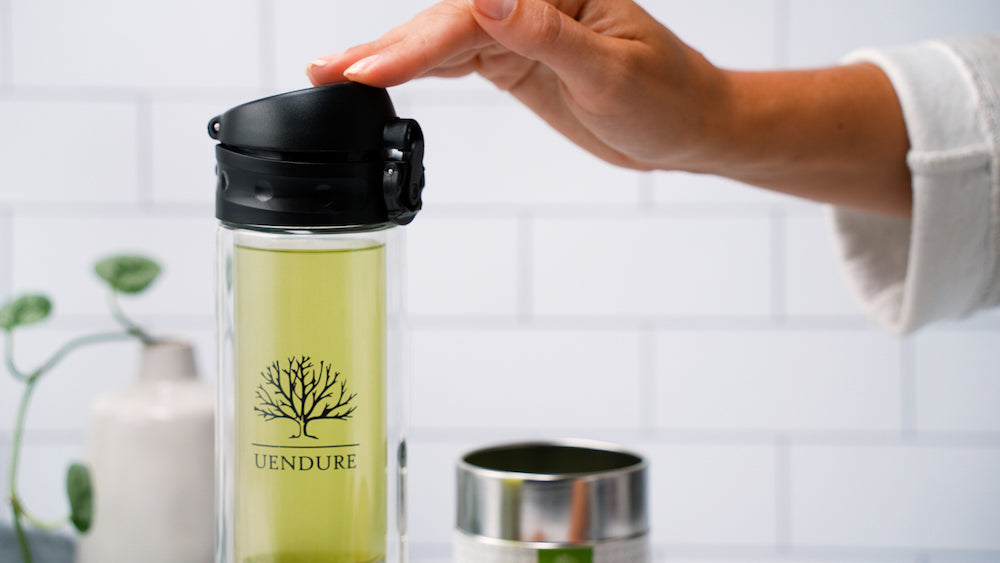Save 15% when you buy the Original Bottle Bundle!
Raspberry Leaf - USDA Organic Loose Leaf Tea
Raspberry Leaf tea benefits for Pregnant Women, Childbirth, Delivery, and Menstruation
Raspberry leaf, derived from the red raspberry plant (Rubus idaeus), has long been used in traditional medicine for its numerous health benefits, particularly for women. Rich in essential nutrients and beneficial compounds, raspberry leaf is highly valued for its ability to support reproductive health. Here, we explore the many benefits of raspberry leaf tea for pregnant women, childbirth, delivery, and menstruating women.*
Benefits for Pregnant Women
Nutrient-Rich Support: Raspberry leaf is a rich source of essential nutrients such as vitamins A, B, C, and E, as well as minerals like calcium, magnesium, potassium, and iron. These nutrients are crucial for the health of pregnant women, supporting overall well-being and helping to prevent deficiencies that can arise during pregnancy.
Strengthening the Uterine Muscles: One of the most renowned benefits of raspberry leaf is its ability to strengthen and tone the uterine muscles. This can help to make contractions more efficient during labor, potentially leading to a shorter and easier delivery. The presence of a compound called fragrine is believed to contribute to this toning effect, enhancing the overall function of the uterine muscles.
Reducing Nausea and Morning Sickness: Raspberry leaf tea can also help alleviate nausea and morning sickness, which are common complaints during pregnancy. Its soothing properties can help to calm the stomach and reduce feelings of queasiness, providing relief for pregnant women.
Benefits During Childbirth and Delivery
Easier Labor and Delivery: Due to its uterine toning properties, raspberry leaf is often recommended to pregnant women in the later stages of pregnancy to prepare the body for labor. By strengthening the uterine muscles, raspberry leaf can help make contractions more effective and coordinated, potentially leading to a smoother and less painful delivery.
Balancing Hormones: The hormonal balancing effects of red raspberry leaf can be beneficial during childbirth. By supporting the production and regulation of pregnancy hormones, raspberry leaf can help ensure a more balanced hormonal environment, which is crucial for a healthy labor and delivery process.
Postpartum Recovery: Red Raspberry leaf tea benefits have also been shown to aid in postpartum recovery by helping the uterus return to its pre-pregnancy size and reducing postpartum bleeding. The nutrient-rich profile of raspberry leaf also supports overall recovery and helps to replenish the body’s nutrient stores after childbirth.
Benefits for Menstruating Women
Alleviating Menstrual Cramps: Raspberry leaf is known for its antispasmodic properties, which can help to reduce the severity of menstrual cramps. By relaxing the uterine muscles and easing muscle spasms, raspberry leaf can provide relief from the pain and discomfort associated with menstruation.
Regulating Menstrual Cycles: The hormonal balancing effects of raspberry leaf can also help to regulate menstrual cycles. By supporting the endocrine system and promoting hormonal balance, raspberry leaf can help to ensure more regular and predictable menstrual cycles, which is beneficial for women experiencing irregular periods.
Reducing Heavy Menstrual Bleeding: Raspberry leaf contains tannins, which have astringent properties that can help to reduce heavy menstrual bleeding. By strengthening the uterine walls and supporting the overall health of the reproductive system, raspberry leaf can help to manage and reduce excessive menstrual flow.
There are other uses for red raspberry leaf as a natural remedy. For instance, raspberry leaf benefits for skin include healing properties for conditions such as burns, cuts, rashes, eczema, and psoriasis. Surprisingly, red raspberry leaves are a storehouse of essential nutrients. They are rich in vitamins, including vitamin C, vitamin A, and several B vitamins, as well as minerals like calcium, iron, potassium, and magnesium. These nutrients are vital for overall health and well-being, and the combination of vitamins and minerals in red raspberry leaves makes them a valuable addition to any diet.
How to Use Raspberry Leaf
Raspberry Leaf Tea: One of the most popular ways to consume raspberry leaf is in the form of tea. To make raspberry leaf tea,
Pour 6-8 ounces of hot water over 1-2 teaspoons of dried raspberry leaves. Cover and steep for 5-10 minutes. You can add lemon and sweetener to taste.
Consultation with Healthcare Provider: While raspberry leaf is generally considered safe, it is always advisable to consult with a healthcare provider before beginning any new supplement, especially during pregnancy. Your healthcare provider can help determine the appropriate dosage and ensure that raspberry leaf is a safe and beneficial addition to your health regimen.
Conclusion
Red Raspberry leaf offers a wide range of benefits for pregnant women, childbirth, delivery, and menstruating women. Its nutrient-rich profile, uterine toning properties, and hormonal balancing effects make it a valuable natural remedy for supporting reproductive health. For pregnant women, raspberry leaf can help to strengthen the uterine muscles, reduce nausea, and support an easier labor and delivery. For menstruating women, it can alleviate menstrual cramps, regulate menstrual cycles, and reduce heavy bleeding. Incorporating raspberry leaf into your wellness routine, whether through tea or capsules, can provide significant health benefits and support overall reproductive health. Always consult with a healthcare provider to ensure the safe and effective use of raspberry leaf.
Disclaimer: The above statements have not been evaluated by the Food and Drug Administration. This product is not intended to diagnose, treat, cure, or prevent any disease.
*source: Healthline
Please also carefully read the full "Terms and Conditions"






